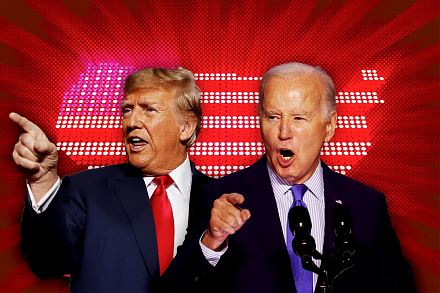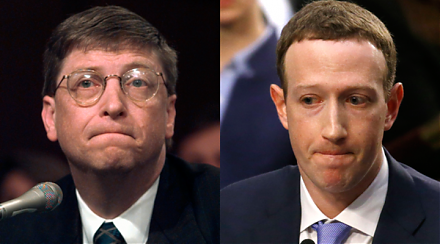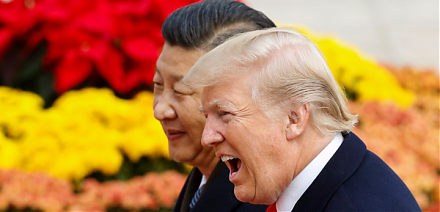

2018-07-07 10:33:00 Sat ET
technology antitrust competition bilateral trade free trade fair trade trade agreement trade surplus trade deficit multilateralism neoliberalism world trade organization regulation public utility current account compliance
The east-west tech rivalry intensifies between BATs (Baidu, Alibaba, and Tencent) and FAANGs (Facebook, Apple, Amazon, Netflix, and Google). These Sino-U.S. tech titans now reach the trademark total market capitalization of $4 trillion as of July 2018. The U.S. tech giants aim to achieve digital supremacy worldwide; yet, only Apple and Amazon receive open access to the Chinese market. The Chinese tech leaders, Baidu, Alibaba, and Tencent dominate in Mandarin online search, e-commerce, mobile payment encryption, social media, and digital communication.
These Sino-American tech titans avoid each other in their home markets, and the recent bilateral trade frictions make it less likely for a fundamental clash to happen in these respective markets. In light of tariffs, quotas, and other trade barriers, the Trump administration bans China Mobile from acquiring access to the U.S. market due to national security concerns. In response to the recent M&A request of Ant Financial Group (an affiliate of Alibaba in China), the Trump administration vetoes Ant's acquisition of a U.S. payment firm. Several investment restrictions prevent Sino-U.S. tech titans from entering the uncharted territory on the other side of the northern hemisphere.
For this reason, these Sino-U.S. tech titans expand their reach and impact in third countries with high population dividends, such as Brazil, India, and Indonesia etc. FAANGs and BATs are now aggressively seeking both domestic and foreign M&A targets, especially unicorns or tech startups each with $1 billion market valuation. These unicorns tend to specialize in specific R&D innovations in order to package themselves for lucrative takeover deals.
As global income and wealth increasingly concentrate in the Sino-U.S. tech titans, consumer benefits manifest in the form of technological improvements. Whether this pecuniary concentration would exacerbate global economic inequality remains an open controversy. Rampant socioeconomic polarization and inequality may be the inevitable by-product of this income and wealth concentration in the Sino-U.S. tech titans. This trend raises a red alert due to grave antitrust concerns, and both U.S. and Chinese regulators and policymakers must attend to the key implications for better economic reform. The law of inadvertent consequences counsels caution.
If any of our AYA Analytica financial health memos (FHM), blog posts, ebooks, newsletters, and notifications etc, or any other form of online content curation, involves potential copyright concerns, please feel free to contact us at service@ayafintech.network so that we can remove relevant content in response to any such request within a reasonable time frame.
2023-02-21 08:27:00 Tuesday ET

Mark Granovetter follows the key principles of modern economic sociology to analyze social relations and economic phenomena. Mark Granovetter (2017) &
2024-03-19 03:35:58 Tuesday ET

U.S. presidential election: a re-match between Biden and Trump in November 2024 We delve into the 5 major economic themes of the U.S. presidential electi
2019-06-09 11:29:00 Sunday ET

St Louis Federal Reserve President James Bullard indicates that his ideal baseline scenario remains a mutually beneficial China-U.S. trade deal. Bullard ind
2019-12-04 14:35:00 Wednesday ET

Many billionaires choose to live below their means with frugal habits and lifestyles. Those people who consistently commit to saving more, spending less, an
2018-09-13 19:38:00 Thursday ET

Bill Gates shares with Mark Zuckerberg his prior personal experiences of testifying on behalf of Microsoft before U.S. Congress. Both drop out of Harvard to
2018-09-19 12:38:00 Wednesday ET

The Trump administration imposes 10% tariffs on $200 billion Chinese imports and expects to raise these tariffs to 25% additional duties toward the end of t